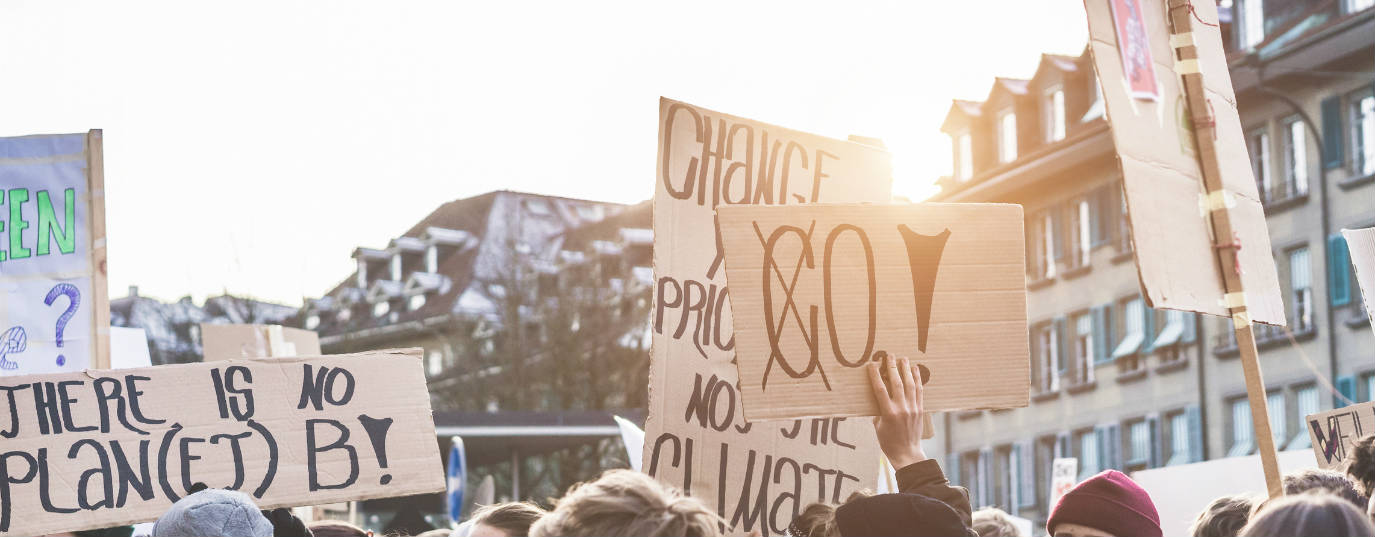Young people become the protagonists at climate summits
87 multinationals have committed to eliminating their emissions by 2050 in the framework of the UN Climate Summit in New York, where Greta Thunberg urged countries forward.
Less than a year ago, Greta Thunberg was just a witty teenager carrying a home-made placard in front of her country’s Parliament, proposing Skolstrejk för klimatet (that schoolchildren go on strike for the climate). Now, the leader of the Fridays for Future movement has emerged as one of the stars of the UN Climate Summit in New York, not only in the special meeting organized for youngsters against climate change held before the summit itself began, but as a special guest of the “adults’ summit”, despite her tender age of 16. It would appear that the pressure from the street has also permeated the United Nations, prepared to use her at an international event of this standing to call on Governments to act against climate change.
But this year the Climate Summit also played host to another main actor: the corporate sector. Just before the event got underway, 87 of the world’s biggest companies announced they would reduce their greenhouse gas emissions to zero by 2050, aligning their businesses with the objectives set out in the Paris Agreement and the recommendations of the scientific community to limit the worst impacts of climate change.
More and better initiatives sought from Governments
The 2019 New York Climate Summit, organized under the auspices of the Secretary-General of the United Nations, Antonio Guterres, put forward one of the most ambitious targets yet by challenging countries to commit to much firmer plans against climate change, now that it has been shown that the Nationally Determined Contributions (NDCs) proposed by Governments are clearly not enough.
The Paris Agreement signed in 2015 obliges Governments to present measures to ensure that the temperature of the planet does not exceed 2°C above the pre-industrial era level and to do everything possible so that this increase remains below 1.5°C. The problem is that, adding up all the plans against climate change sent in by the signatory countries, the temperature will increase by over 3°C, having a lethal impact on the planet and human beings, according to the latest report by the IPCC, the international panel of experts which advises the UN. The first review of those plans is in 2020, but Antonio Guterres asked the countries participating in the New York Climate Summit to announce or present their reviews now.
Decarbonizing the economy, a must
The fight against climate change is increasingly aimed at one thing: the radical decarbonization of the economy. The UN Secretary-General has urged countries not to build any more fossil fuel power stations from 2020 onward, to stop handing out subsidies for fossil fuels, and to commit fully to achieving carbon neutrality – zero net polluting emissions – by 2050.
One of the main solutions of 2019 New York Climate Summit, which has shown to be most efficient in this respect, is carbon price fixing, i.e. quantifying monetarily the cost of emitting polluting gases so that companies and governments abate the cost by investing in non-polluting production methods. Pollution cannot come free of charge; the polluter must pay. The key to carbon prices is that they should be high enough to incentivize the redirection of investment toward more sustainable economic models. To this end, emissions markets have been created with a fixed maximum permitted volume. Governments, for their part, can also impose specific taxes on emissions.
But, as well as these institutional instruments, the responsibility of the private sector to reduce polluting emissions is essential. Companies should want to fix carbon prices themselves by incorporating the price of their emissions in their operational costs.
Historical initiative by the private sector in Climate Summit
The New York Climate Summit does not only gather Governments, but also investors and the CEOs of big multinationals, who are key actors in the market and in introducing policies which aim to support the fight against climate change.
In fact, this Climate Summit may be remembered precisely because the private sector has taken up the reins in the fight against climate change with an historic initiative: 87 large companies from 27 countries, with a joint market capitalization of 2.3 trillion US dollars, committed to achieve the 1.5°C target and reach the ‘zero emissions’ level before 2050.
Also, some multinationals have adhered to the call from the Carbon Pricing Leadership Coalition (CPLC) to establish long-term, stable, carbon pricing policies as a basic instrument against the climate emergency and have signed up to leading a fair transition to quality green employment.
If Boards of Directors of big companies are able to achieve their business objectives, surely they can also reach the environmental targets the planet needs.
Sources: The New Yorker, El País, Climate Week NY 2019, Pacto Mundial de la ONU








